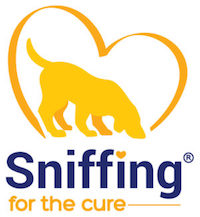Unfortunately, earlier this week we had an incident with Emma. I was distracted for only one minute. During that minute, Emma ate four mini avocados that were on top of the counter. We could only find two of the four seeds. We immediately called the vet, and a few minutes later, she was being evaluated.
Avocado ingestion can cause upset stomach in some dogs, but the pit is the biggest concern. If the pit is ingested, it can cause intestinal obstruction in the esophagus, stomach or intestines. Pancreatitis, which is inflammation of the pancreas, can also happen due to the high-fat content in avocados.
The experience was extremely stressful, and it was completely my fault. Dogs are curious creatures and often cannot resist smelling, tasting and sometimes swallowing foods, plants and other things in our homes that could harm them. After the traumatic experience, the first thing I did was to pet-proof not only the kitchen but the rest of the house. Pet-proofing the home is the most effective way to keep our pets safe.

Below are some tips and measures I took at home to prevent future incidents:
🐾 Place toxic foods out of reach. Some human foods can be poisonous to dogs and cats. Raisins, grapes, macadamia nuts, onions, garlic, unbaked yeast bread dough, fatty foods, and chocolate are toxic to dogs and should be kept out of reach. If you have large dogs, like me, keep the kitchen counter tops free of any temptation that can harm your puppy. You can find a more extensive list of human foods that can be toxic to pets in the Pet Poison Helpline’s website.
🐾 Garbage. Use a garbage container that can be locked and that it is kept closed. Coffee grounds, old food, and bones are common things that can be toxic to your pup.
🐾 Alcohol. Keep all alcoholic beverages out of reach. Alcohol can cause sedation, difficulty walking, low blood sugar, low temperature, gastrointestinal distress, respiratory depression, and coma.
Ironically, the third week of March (this week) is designated as the National Poison Prevention Week. Awareness is key to preventing poisoning emergencies.
Below I share some tips to keep your loved ones safe:
🐾 Pet-proof your home. Pet-proofing is the first step to keep Fluffy healthy and safe. There are many agents such as detergents, medications, insecticides, paint, batteries, fertilizers that can cause a lot of harm if ingested. For tips to pet-proof your home, you can follow the guide provided by the Pet Poison Helpline.
🐾 Be prepared. If your dog ingests a toxic substance, the first thing you should do is call the veterinarian or Pet Poison Helpline. Save your veterinarian phone number, along with an ER vet and the Pet Poison Helpline’s phone number (855-764-7661) in your cell phone, so you have immediate access to help when needed. For people, use the free Poison Helpline 1-800-222-1222. Add this number to your contacts.
🐾 Practice safe storage habits. Always store medicines and hazardous substances up, away, and out of sight of your children or pups. Keep these substances in their original, child-resistant containers.
🐾 Always, read and follow all labels and directions. Review medicine and product labels before using them, especially before giving medicine to your pup. If you are not sure, call the veterinarian and ask her.
🐾 Do not provide any home remedies by mouth. Never induce vomiting. Don’t give hydrogen peroxide to your pet without checking with a vet or with Pet Poison Helpline first.

As for Emma, so far, she is doing well. We are monitoring her for any signs of obstruction which would include vomiting, looking sick or not pooping. I am keeping my fingers crossed.





No Comments